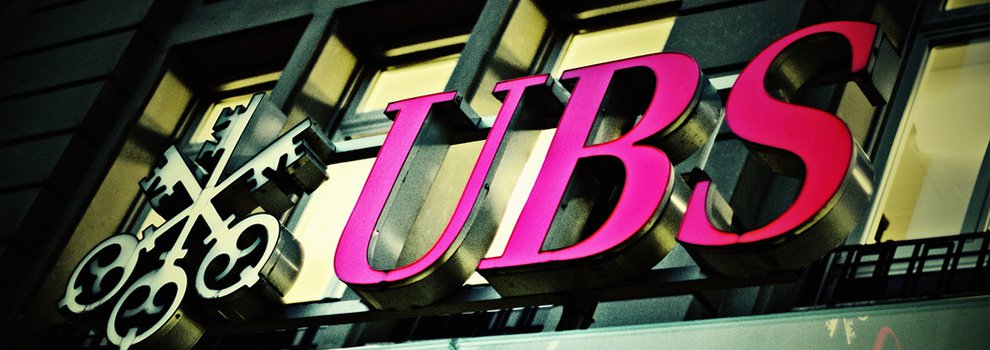UBS to Develop Yet Another ‘Permissioned Blockchain’ for Banks
In April, Bitcoin Magazine reported that UBS was planning to investigate blockchain technology in a new innovation lab based in London. The innovation lab is located in Level39, Europe’s largest technology accelerator space for finance and cyber-securities, and focuses on exploring the role of blockchain technology in financial services.
UBS, a Swiss global financial services company with its headquarters in Basel and Zürich, is the biggest Swiss bank and is considered as the world’s largest manager of private wealth assets, with more than 2.2 trillion Swiss francs (CHF) in invested assets.
In August, the bank launched a “Future of Finance Challenge” for financial technology entrepreneurs and startups. The Future of Finance Challenge covers a broad range of emerging fintech areas, including blockchain technology and applications, cryptocurrencies, distributed ledgers, security and privacy verification and smart contracts.
Now, the blockchain vision and strategy of the giant Swiss bank are becoming clearer. UBS is working on a prototype virtual currency that it hopes will be used by banks and financial institutions as a basis to settle mainstream financial markets transactions, The Wall Street Journal reports.
The new virtual currency, dubbed “utility settlement coin,” would be used for post-trade settlements between financial institutions on private financial platforms built on blockchain technology. For example, UBS might have its own blockchain-based platform to issue bonds, and another bank might have a blockchain-based stock-trading platform, but both would use the same utility coin for settlement.
The bank doesn’t plan to issue the new digital coin itself but hopes to work with other banks, regulators and financial service providers for an industrywide product. Hyder Jaffrey, the bank’s e-commerce commercial director, said UBS had already reached out to potential partners, but would not comment on specific institutions.
The utility settlement coin is a “permissioned blockchain” similar to the Bankchain project recently announced by Bitcoin exchange itBit. Permissioned blockchains, also endorsed by Accenture and Digital Asset Holdings CEO Blythe Masters, are the new trend in Wall Street’s uneasy flirtation with Bitcoin. Basically, permissioned blockchains would offer the advantages of digital currencies powered by public blockchain – fast and cheap transactions permanently recorded in a shared ledger – without the troublesome openness of the Bitcoin network where anyone can be a node on the network anonymously.
Using the utility settlement coin or similar systems, financial institutions could settle trades in seconds rather than days, which could lead to reduced risk, lower operational costs, and increased efficiency. To achieve this vision, UBS is partnering with blockchain fintech startup Clearmatics, based in London. The key difference between Clearmatics’ implementation of the blockchain technology and Bitcoin is the fact that only authorized participants can validate transactions. “Unlike cryptocurrency blockchains, validators are authenticated and legally accountable,” states the Clearmatics website.
A recent post on the Clearmatics website, titled “No, Bitcoin is not the future of securities settlement,” provides a point-by-point analysis of the original Bitcoin whitepaper by Satoshi Nakamoto from the point of view of the financial establishment, and a clear outline of the reasons why banks and mainstream financial institutions won’t touch permissionless blockchain networks like Bitcoin.
“To serve as a replacement for the legacy technology implementing registered, book-entry assets, a distributed ledger of financial assets will have to ensure a tight correspondence between what the ledger and the law say is the state of who-owns-what,” notes the post. “This is obviously incompatible with a protocol based on anonymous transaction validators; the law will not treat a ledger record as authoritative if everyone knows that the current longest chain contains blocks generated by an anonymous attacker who replaced a bit of history that was chronologically prior. But the bitcoin protocol has no mechanism for dealing with this scenario, no mechanism for bringing ledger state and legal state back into alignment.”
According to the company, Clearmatics’ permissioned blockchain infrastructure is not only “thousands of times more efficient” than the Bitcoin network, but also places a governance structure over the validators to ensure resistance to attacks.
The Wall Steet Journal article wisely mentions critiques to UBS’ approach and permissioned blockchains in general. In particular, former Bitcoin Foundation director Jon Matonis is persuaded that private, permissioned blockchains might fall short of their objectives. “It could end up being very similar to centralized payments networks we have right now, without the benefit of the network effect of bitcoin,” he said.
The post UBS to Develop Yet Another ‘Permissioned Blockchain’ for Banks appeared first on Bitcoin Magazine.



